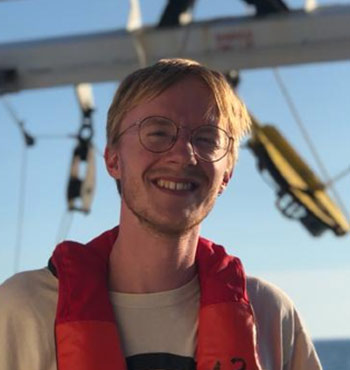Lighting up zooplankton - mapping marine light using robotics
Light plays a key role in the behaviour and life cycles of marine ecosystems, from determining the timing and magnitude of primary production, to enabling visual predation and therefore being directly linked to survival. Zooplankton, a diverse group of small aquatic invertebrates, are known to modify their vertical position in the water column depending on the level of illumination1 . They are often used as a target group of species as we can i) study their behaviour and response to light in the laboratory, and ii) observe their behaviour in situ using acoustic and video imaging technology. Underwater illumination can be modified by changes in riverine input, light pollution from human inhabitation or fish farms, solar elevation, and the magnitude, community composition, and depth of phytoplankton blooms. We are aware that underwater light is changing globally, caused by climate driven changes in the amount and type of run-off in coastal areas, and changes in primary production timing and magnitude, both of which have consequences for the optical properties of water.
This studentship will combine state-of-the-art autonomous sampling methods, sophisticated acoustic technology, and newly developed underwater light modelling approaches to fully quantify the temporal and spatial scales of changes in the light field that exist in a river to coast habitat. The aim of this is to quantify the effect this has on the zooplankton community that is known to modulate their vertical positioning in relation to light. The key research question is:
How are changes in the marine environment reflected in underwater light, and what effect does this have on zooplankton?
There will be quarterly surveys in Loch Etive (Argyll) using instruments mounted on a novel autonomous surface vehicle – the “Impyak”. Surveys will be focused on times and locations that offer optically variable environments i.e. across seasons to accommodate changing light levels and riverine flow, and in distinct parts of the Loch Etive system for riverine run-off and light pollution variability. High-resolution parallel measurements of optical and acoustic data will be taken to model underwater light and determine the vertical positioning of zooplankton in the water column. The use of an autonomous platform offers a new and exciting opportunity for the student to systematically monitor the co-dependent parameters linking light, hydrography and pelagic community structure over time and spatial scales that have previously been difficult to achieve. This combination of techniques provides the student with a unique opportunity to understand a key local ecosystem using a suite of innovative methods and integrating them for the first time.
Supervisors
Dr Laura Hobbs: SAMS
Dr Kim Last: SAMS
Dr Phil Anderson: SAMS
Dr David McKee: University of Strathclyde
Funder
NERC – SUPER DTP
Start Date
02/10/2023
Career
March 2023-August 2023 - Marine ecological advisor - Rijkswaterstaat (The Netherlands)
Dec 2021 - Oct 2022 - Research associate statistics - Landelijke Studentenvakbond (The Netherlands)
Education
2022 - Master’s degree - International Master of Science in Marine Biological Resources - Eleven European universities in the field of marine sciences, supported by the European Marine Biological Resource Centre (EMBRC). Ghent University - UGent (BE), University of Sorbonne- SU (previously: UPMC) (FR), University of Algarve- UAlg (PT), University of Oviedo- UniOvi (ES), Atlantic Technological University - ATU (IE), University of the Basque Country- UPV/EHU (ES), Polytechnic University of Marche - Univpm (IT), University of Bergen- UiB (NO), University of Western Brittany- UBO (FR), University of Côte d’Azur- UCA (FR), University of Gothenburg - UGOT (SE)
2016 - Bachelor’s degree – Bachelor Natural and Social Sciences - University of Amsterdam
Fieldwork experience
-Two-day oceanographic campaign to study impact of river plume on water characteristics and plankton communities in the Mediterranean. Cruise planning; Niskin bottles, CTD, Underwater Vision Profiler and WP2 net samples
-Monthly sampling of benthic macroalgae communities in intertidal rock pools in Ancona, Italy, to study the influence of the timing of mechanical disturbance on early succession. Study design, photographic sampling, taxonomic identification
